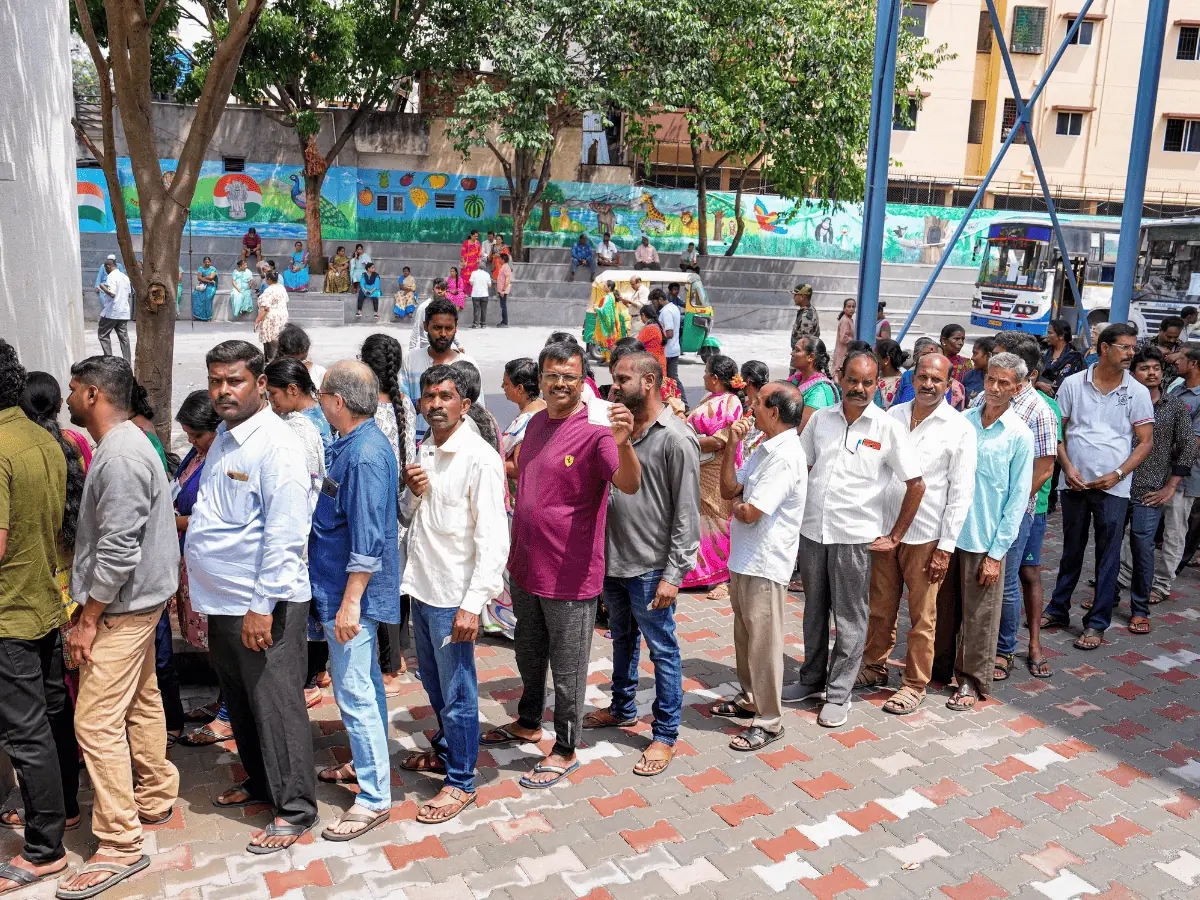
As India gears up for the forthcoming General Elections scheduled from April 19th to June 1st, the nation finds itself at a critical juncture, not only in terms of its political trajectory but also in confronting the harsh realities of climate change. Against the backdrop of scientific projections indicating a 22% likelihood of 2024 surpassing 2023 as the hottest year on record globally (with a staggering 99% probability of ranking within the top 5), it is important that we confront the environmental footprint generated by electoral activities in our country.
Between 2000 and 2019, the economic toll of modern pollution forms—ambient, chemical, and lead pollution—has surged, now estimated to constitute approximately 1% of India’s GDP. Moreover, with over 377 million urban residents living in 7,935 towns and cities, generating 62 million tonnes of municipal solid waste annually, it is alarming that only 43 million tonnes of waste are collected, leaving significant amounts untreated and 31 million tonnes dumped in landfills.
The ramifications of such unscientific landfill practices are dire, as they give rise to harmful chemicals seeping into the soil and groundwater, rendering the latter unfit for consumption and contributing to various illnesses. Additionally, waste in landfills emits harmful gases like methane and carbon dioxide, comprising 90–98% of landfill gases, alongside nitrogen, oxygen, ammonia, sulphides, hydrogen, and other gases, worsening air pollution and further fuelling global warming.
Furthermore, the disposal of land-based waste often culminates in marine pollution, as a considerable portion eventually finds its way into the water bodies. The decomposition process releases poisonous gases such as methane, hydrogen sulphide, and carbon monoxide, which, as evidenced by incidents like the 2016 fires in Mumbai’s landfills, pose significant health and environmental hazards, contributing to air pollution levels and exacerbating respiratory issues among the populace. Therefore, it is crucial to acknowledge that India, as a country, struggles to address diverse aspects of pollution control and waste management. Consequently, alongside numerous other issues, the contamination by the electoral process emerges as an additional obstacle. In essence, as we embark on the democratic exercise of elections, it’s imperative that we also address the pressing environmental impacts caused by the electoral activities.
While the zeal of democratic participation often overshadows the environmental consequences, it is essential to recognise the substantial impact of traditional election methods. The excessive use of promotional materials, mainly crafted from non-biodegradable substances like plastic and polythene, presents an environmental challenge. A study conducted by the Centre for Science and Environment (CSE) in 2019 revealed the alarming statistic that Indian elections generate approximately 6000 metric tonnes of plastic waste solely from campaign materials. This overwhelming volume of waste serves as a stark reminder of the pressing need for the adoption of sustainable waste management practices within our electoral processes.
Furthermore, in the 2021 assembly elections, a green protocol handbook released by Suchitwa Mission projected the accumulation of approximately 5,426 tonnes of plastic and disposable waste materials by the end of the electoral period in the states. This estimate highlighted a myriad of sources, including banners, posters, hoardings, political party flags, and disposable items, further emphasising the magnitude of the environmental challenge posed by electoral activities.
Moreover, the energy-intensive nature of political rallies, coupled with the widespread use of loudspeakers and other resources like transport, worsens environmental degradation, thereby endangering the well-being of our citizens. The sheer scale of India’s elections, characterised by millions of voters and extensive political meetings, further intensifies these concerns, underscoring the urgent need for reform.
Acknowledging the gravity of this issue, the Election Commission of India (ECI) took a credible step in August 2023, ahead of the Assembly elections in five states, by expressing concerns about the environmental hazards associated with the use of non-biodegradable materials in elections. Notably, the ECI has been advocating against the use of plastic and polythene for election material preparation since 1999, signalling a long-standing commitment to environmental responsibility.
Additionally, Kerala’s 2019 election is an instance that marked a significant leap towards eco-consciousness. Led by the Kerala High Court’s ban on non-biodegradable materials, the state’s election commission championed a “green protocol.” Political parties were urged to ditch single-use plastics for eco-friendly options like paper posters. Collaborating with environmental bodies also ensured state wide implementation. From reusable cutlery to plastic-free banners, every effort made was aimed at sustainability and the polling stations transformed into eco-friendly hubs, setting a new standard. Public engagement, from student initiatives to reporting violations, reinforced the green ethos. Despite some shortcomings, this election laid a crucial foundation for future eco-friendly practices. Kerala’s journey towards greener governance is an apt example motioning a promising shift in electoral consciousness.
However, further action is imperative to attain sustainability on a nationwide level. Recognising that every election contributes to an avoidable ecological footprint, there is an urgent need for the adoption of eco-friendly electoral processes. Such initiatives would not only mitigate environmental degradation but also foster a culture of environmental stewardship among citizens. By embracing sustainable practices, we can harness the transformative power of democracy to promote both civic engagement and environmental sustainability.
Moving forward, policymakers, political parties, and citizens alike must prioritise the integration of environmental considerations into our electoral practices. This involves the implementation of stringent regulations on the use of non-biodegradable materials, incentivising eco-friendly alternatives, and promoting public awareness campaigns on the importance of environmental responsibility in elections.
Ultimately, the success of our democracy hinges not only on the strength of our institutions but also on our collective commitment to safeguarding the environment for future generations. By reimagining our electoral practices through an environmental lens, we can pave the way for a more sustainable and inclusive democratic process, one that serves both the interests of the present and the needs of the future.
Moumita Barman is a Research Associate at the Centre for Development Policy and Practice (CDPP). Her research focuses on Gender, Social Conflict, Caste, Religion in India, Education, and Rural Livelihoods.
